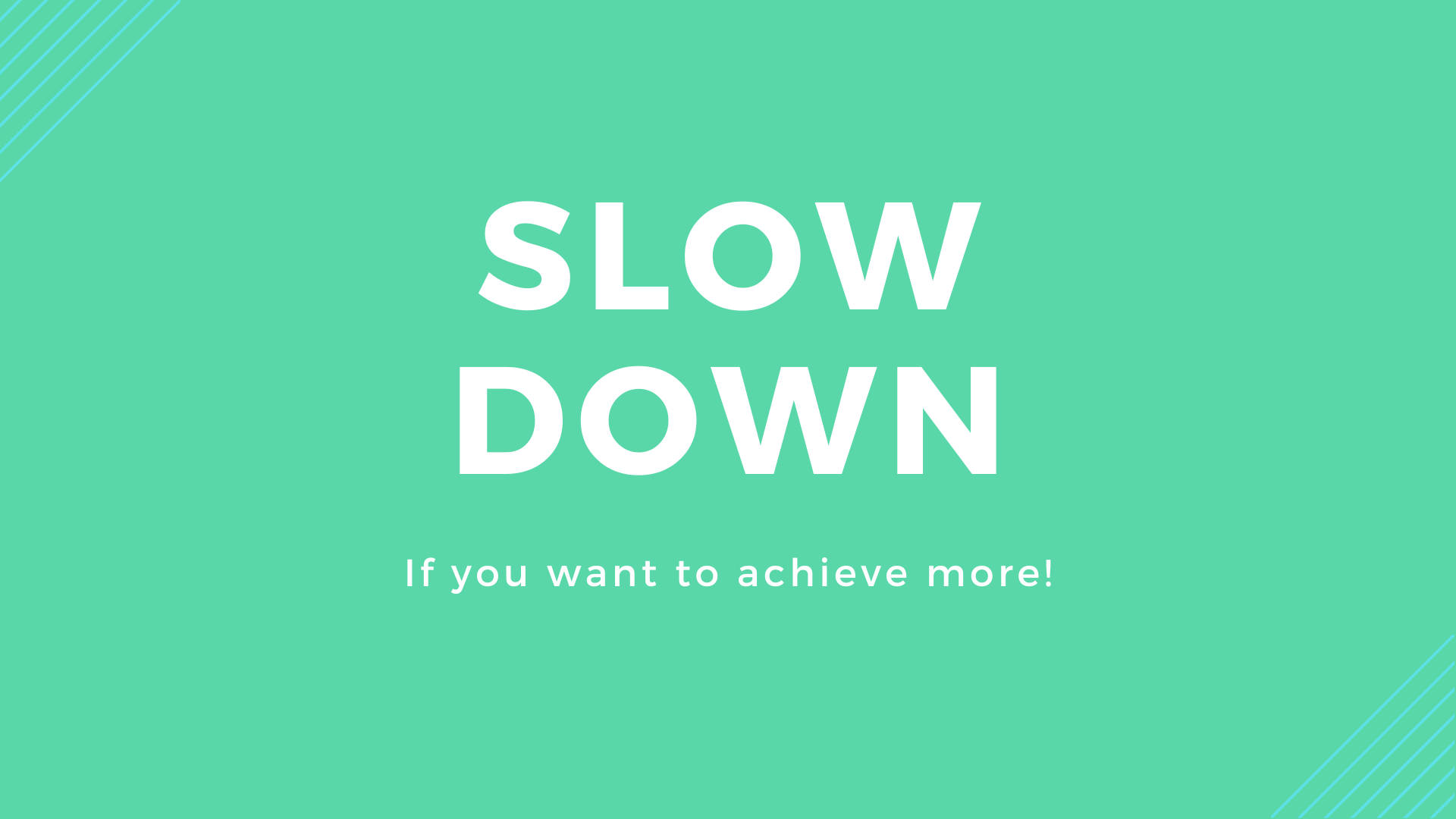What is slow work?
Slow work is an approach that focuses on the human being, their nature, and needs, centered on mindfulness and creativity, aiming to create balanced and sustainable work environments.
Although opposite to classical productivity methods, it is spreading rapidly due to its significant benefits in terms of work quality and life quality.
How to practice slow work?
Slow work is a set of good habits that drastically increase the effectiveness and productivity of our days.
Here are 6 key points to consider:
1. Give yourself the chance to slow down
Remember, no matter how much you feel like a "racing car," when the speed gets too high, you end up losing control.
Slow down!
Limit your activities, reduce your workload, take breaks every now and then, even just 5 minutes between tasks. You'll feel less stressed, and gradually you'll learn that slowing down means being more aware of what you're doing and how you're doing it.
The result?
The more you embrace this mindset, the more satisfied you'll be with yourself.
"Slow down and enjoy life! You not only miss the scenery by going too fast, you also miss the sense of what you're doing"
Eddie Cantor
2. Set Your Priorities
Even if you believe you can do everything, you need to accept that you can't. You must learn to choose which activities to focus all your efforts on and disregard the others.
In short, learn to excel at a few things rather than be mediocre at many!
There will surely be some resistance at first, but after a few attempts, you'll realize that the quality of what you accomplish will be unmatched by reducing the number of activities you take on.
"As much as we'd like to, we can't do it all."
Greg McKeowen - Essentialist
3. Plan gradually and safely
There’s no need to emphasize how important planning is.
When planning, keep in mind that you are creating a roadmap to reach your goals without overloading yourself.
Here are some tips to keep in mind when planning:
- Limit the number of scheduled activities
Remember that too many activities lead to mental fatigue and a consequent loss of effectiveness.
- Consider the unexpected
Leave some unscheduled time as a safety net for unforeseen events, as they rarely don't happen.
- Plan today what you will do tomorrow
By planning in advance, you will avoid feeling pressured and can focus only on what you have already decided is important.
- Beware of complexity
Be sure to break down complex tasks into a list of simple activities before planning them.
- Plan your free time
Consider free time and rest as an integral part of your work.
4. Protect Your Environment
For slow work to be effective, it’s necessary to minimize distractions. You can certainly work less time, but the quality of attention you give during working hours must be intense.
Disable notifications, put your phone on silent, and check emails as little as possible.
In short, make sure that when you start working, the chances of being interrupted are very slim.
5. Set a schedule
Confining your workday to specific hours may seem restrictive, but while it is in a way, the benefits are numerous.
In short, setting time limits within which to operate forces us to avoid bad habits like perfectionism or procrastination, which are fierce enemies of productivity.
Not only that: it also allows us to perceive our free time as truly free.
6. Take breaks
Proper breaks help reduce mental stress and take advantage of the Zeigarnik effect.
Here are some tips and thoughts to consider:
- Celebrate Your Achievements
Whenever you complete an important task or a particularly challenging activity, take some time to celebrate your success. This will boost your motivation for future tasks.
- Don’t Overload Yourself with Information
During breaks, try to be selective with the information you consume. A break is meant to release tension, not to introduce new information.
- Find Inspiration in Small Things
Sometimes a walk in nature or a park, spending a few minutes listening to music, or enjoying something tasty can be very helpful, especially when you feel stuck.
- Take Days Off
Completely unplugging from time to time is the best thing you can do to recharge your batteries and return to work with renewed enthusiasm.
- Rest
By dedicating less time to work, you need to ensure that time is of high quality. Therefore, it’s important to learn to manage your energy effectively.

